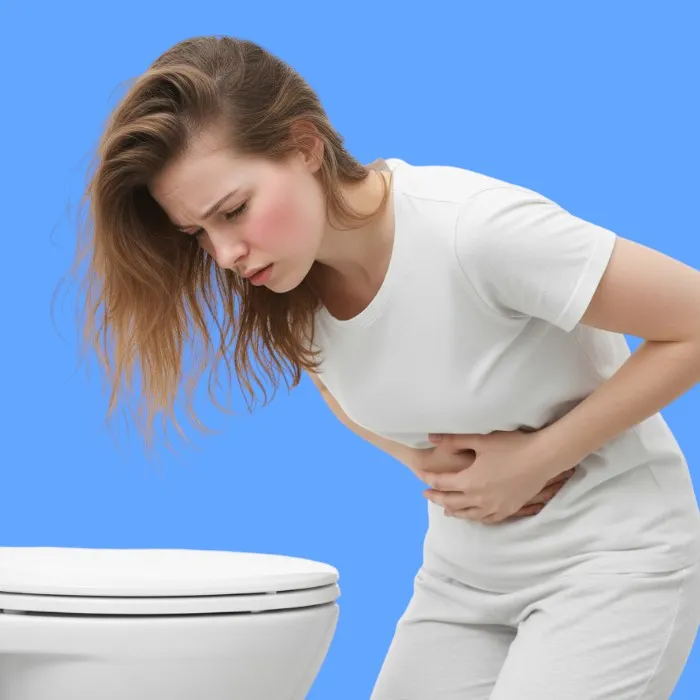What is food poisoning?
Food poisoning is a health condition caused by consuming food or drink contaminated with certain types of bacteria, viruses, or parasites.
Symptoms often appear suddenly within a few hours of eating and may vary in severity depending on the type of contaminant and the amount of food consumed.
What are the causes that may lead to infection?
Food poisoning can result from several factors, including:
- Eating undercooked food.
- Storing food at inappropriate temperatures.
- Using contaminated water in food preparation.
- Not washing hands before cooking or eating.
- Food contamination during preparation or serving.
- Consuming expired products.
- Infection transmission from an infected person.
- Using unclean kitchen utensils.
What are the symptoms that may indicate infection?

Symptoms of food poisoning appear quickly and include:
- Persistent nausea.
- Frequent vomiting.
- Severe diarrhea.
- Abdominal pain.
- High fever.
- General weakness and fatigue.
- Mild to moderate headache.
- Dry mouth or skin.
When should you see a doctor?
It is recommended to see a doctor immediately in the following cases:
- Vomiting or diarrhea lasting more than two days.
- Presence of blood in stool or vomit.
- Very high fever.
- Signs of dehydration such as low urination or dizziness.
- If the patient is a child or elderly.
- If symptoms are severe from the beginning.
What are the available treatment options?
Treatment depends on the type and severity of the poisoning and includes:
- Rehydration by drinking water or oral rehydration solutions.
- Taking anti-diarrheal medications as prescribed by a doctor.
- Using antibiotics in cases of bacterial poisoning.
- Complete rest and avoiding heavy food.
- Monitoring symptoms and their progression.
Can food poisoning be fully cured?
Yes, in most cases recovery occurs within a few days without complications.
However, in severe cases, the patient may require close medical follow-up.
What are the possible complications?
In some cases, food poisoning may lead to:
- Severe dehydration.
- Temporary kidney failure.
- Blood pressure disorders.
- Blood poisoning.
- Nervous system problems.
- Complications in pregnant women or children.
What are the prevention tips for food poisoning?
To prevent food poisoning, it is recommended to follow these tips:
- Wash hands thoroughly before preparing food.
- Cook food at appropriate temperatures.
- Store food in the refrigerator immediately after cooking.
- Avoid eating uncovered food in public places.
- Use clean kitchen tools.
- Check product expiration before use.
- Drink clean and purified water.
- Avoid reheating food more than once.
Frequently asked questions about food poisoning
Can it happen because of fruits?
Yes, if they are contaminated or not properly washed.
Does it affect pregnant women?
It may cause serious complications and requires immediate medical advice.
Does it always require antibiotics?
No, it depends on the type of cause.
Can it cause death?
Only in rare and severe cases.
Article summary
Food poisoning is a common condition that is treatable and preventable It starts with disturbing symptoms but usually resolves within a few days.
Prevention begins with personal hygiene and food safety, and medical follow-up is essential in severe cases.